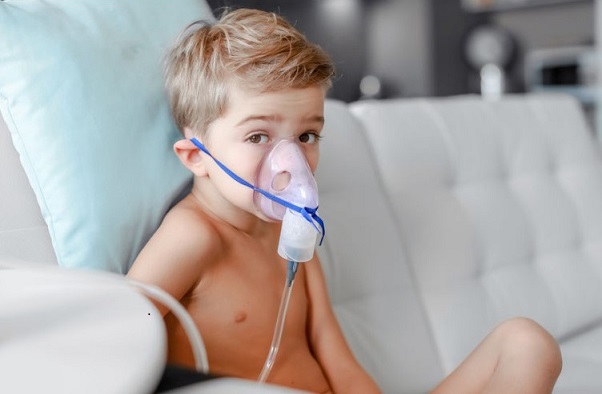Nikhil Prasad Fact checked by:Thailand Medical News Team Sep 29, 2025 4 months, 3 weeks, 6 days, 23 minutes ago
Medical News: COVID-19 infection in children linked to rise in allergies
Medical News: A new scientific review is raising concerns that children who recover from COVID-19 may later be at greater risk of developing asthma, allergic rhinitis, and other allergy-related conditions. Researchers from the First Department of Pediatrics, Medical School, National and Kapodistrian University of Athens at “Aghia Sophia” Children’s Hospital in Greece have pieced together evidence showing how the virus could leave behind lasting changes in the immune system. According to this
Medical News report, the findings suggest that COVID-19 does not just end with recovery but may alter the way a child’s body responds to common allergens.
 Pediatricians Warn That COVID-19 is Fueling Allergies in Children
Conflicting global data but strong warning signals
Pediatricians Warn That COVID-19 is Fueling Allergies in Children
Conflicting global data but strong warning signals
Large studies in South Korea and multinational analyses have revealed a significant increase in new asthma and allergy diagnoses among children after COVID-19. In South Korea, for example, one study showed that infected children had more than double the risk of developing asthma within a year compared to those never infected. Similar patterns were seen across millions of health records from Japan and the UK. Interestingly, American studies showed mixed results, with some reporting no increase in asthma risk. Experts believe differences in healthcare access, environmental exposures, and study methods may explain these contradictions.
The immune system after COVID-19
The review outlines how COVID-19 may trigger allergy-prone immune pathways. When the virus infects airway cells, it causes damage that releases special alarm molecules such as IL-33, IL-25, and TSLP. These substances activate immune cells that drive type-2 inflammation, the same pathway involved in asthma and hay fever. Children also show changes in “cytokine memory,” where immune messengers like IL-7 and IL-15 reshape long-term T and B cell behavior. Epigenetic “scars,” including altered DNA methylation, may lock the immune system into a state that favors allergic reactions. At the same time, reduced function of regulatory T cells—the body’s tolerance enforcers—lowers the threshold for reacting to harmless triggers such as pollen or dust.
Why allergies may persist
Another factor is the impact on the microbiome. COVID-19 infections in children were linked to disruptions in gut and airway bacteria, reducing protective species such as Bifidobacterium. This imbalance further weakens immune tolerance and paves the way for allergies. The review also warns that multisystem inflammatory syndrome in children (MIS-C), a severe complication of COVID-19, produces even more dramatic immune alterations, including higher levels of inflammatory cytokines that may set the stage for chronic allergic disease.
What this means for families and doctors
Although not every child who had COVID-19 will develop allergies, the accu
mulating evidence shows that there is a biological basis for concern. The researchers stress that long-term follow-ups of children are urgently needed. They also point out that vaccination seems to provide some protection, as children who received at least two doses had lower rates of new allergy diagnoses.
Final thoughts
The study makes it clear that the aftermath of COVID-19 goes far beyond the initial infection. Even in children who had only mild or symptom-free cases, the virus may leave behind subtle immune changes that increase their risk of developing allergies later in life. This knowledge is vital for pediatricians and parents alike, as early monitoring and preventive strategies could help reduce the burden of asthma and allergic diseases in the future.
The study findings were published in the peer reviewed journal: Cells.
https://www.mdpi.com/2073-4409/14/19/1511
For the latest COVID-19 News, keep on logging to Thailand
Medical News.
Read Also:
https://www.thailandmedical.news/news/covid-19-infection-linked-to-depression-and-anxiety-in-children
https://www.thailandmedical.news/news/study-shockingly-finds-that-medical-imaging-scans-increase-risk-of-cancers-in-children-by-between-76-to-240-percent
https://www.thailandmedical.news/news/american-doctors-warn-of-alarming-rise-in-dangerous-brain-complications-in-children-after-covid-19-pandemic
